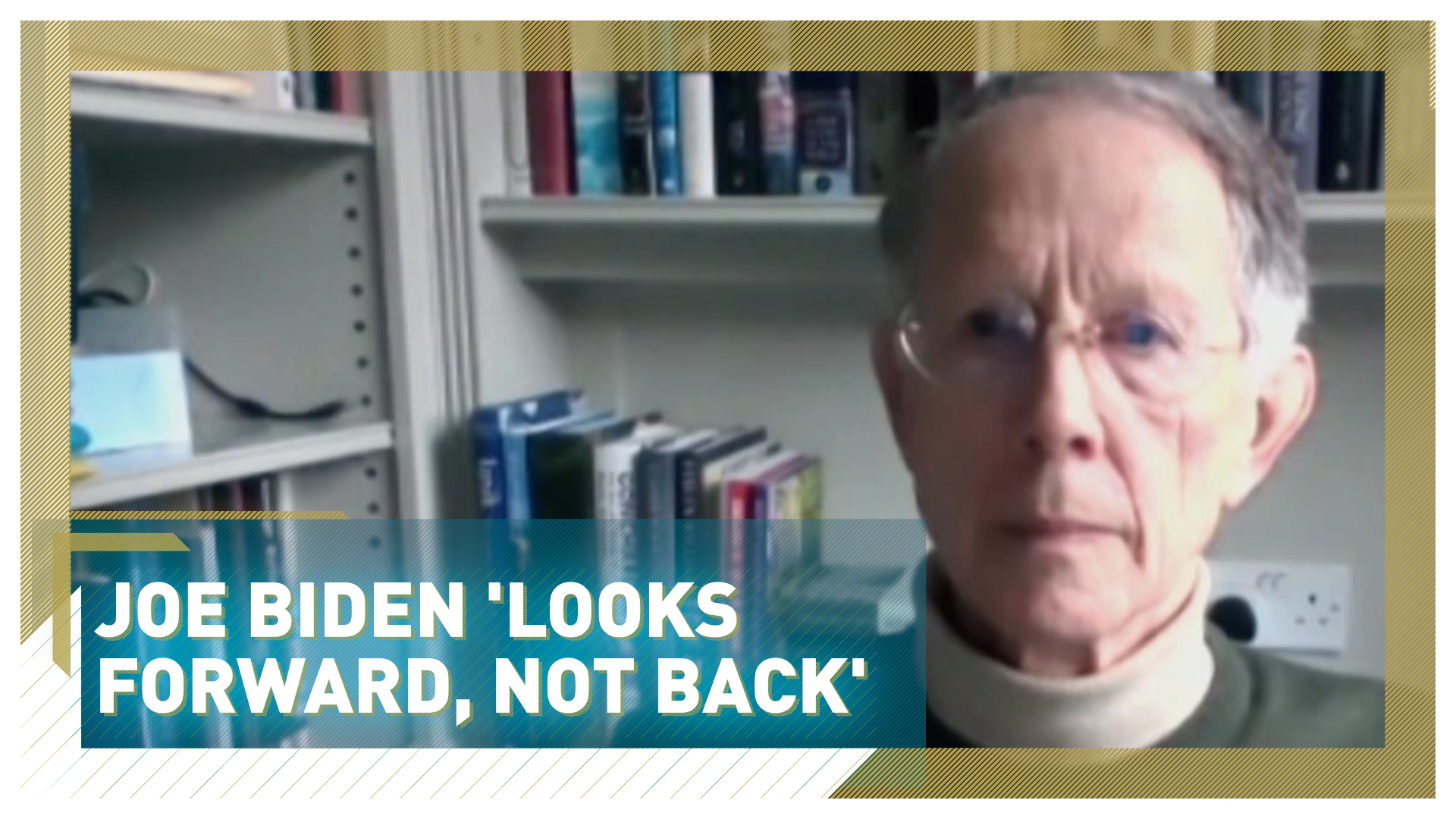05:33

Joseph R. Biden Jr was sworn in as the 46th president of the U.S. during a crowdless inauguration that looked like no other in the nation's history. And after the period of transitional turmoil created by his predecessor Donald Trump, Biden's work can finally begin – but how will his term in office affect Europe?
Many leaders in Europe are looking at a Biden presidency as an opportunity to improve their relationship with the U.S., strained after four years of Trump's administration.

"It's been a turbulent period in the [U.S.-EU] relationship, because for the first time since the Second World War, we've had a president of the United States who hasn't been willing to be the leader, if you like, of a multilateralist Western community," explains David Manning, former UK ambassador to the U.S..
"American leadership of the traditional kind has been missing," Manning says, but, with Biden, Europe is welcoming a multilateralist president who, despite an enormous amount of issues to deal with domestically, is expected to reset transatlantic relations.
But if the European Union is looking at Biden as "a friend in the White House," the UK fears what once was called its 'special relationship' with the U.S. might now be a little less so – especially after Brexit.

Joe Biden is sworn in as the 46th president of the United States by Chief Justice John Roberts as Jill Biden holds the Bible at the U.S. Capitol in Washington, on January 20. /AP/Andrew Harnik
Joe Biden is sworn in as the 46th president of the United States by Chief Justice John Roberts as Jill Biden holds the Bible at the U.S. Capitol in Washington, on January 20. /AP/Andrew Harnik
Biden will be the first U.S. president to deal with a UK that's now officially outside the European Union, a political move he had strongly criticized as a mistake for Britain.
But Manning thinks Biden won't punish the UK for a decision he didn't agree with. "My limited knowledge of him, I knew him slightly when I was ambassador in Washington, is that he's somebody who looks forward, not back. He's not going to recriminate about this," he says.
According to Manning, Biden is set towards working together with both the EU and the UK on the issues of climate change and the managing of the COVID-19 pandemic, where both will prove "naturally usefully partners" to the U.S..
Despite some political experts claiming the UK has lost its seat at the table after leaving the EU, Manning believes Biden's U.S. will approach both the UK and the EU as equal interlocutors.
"Even when we were part of the European Union, the American administration has always wanted to talk to the European Union as the European Union and [separately] to the individual countries that make it up," he explains.
"And in this first year, it's worth remembering that Britain has the chairmanship of the G7 countries and it's also going to host the COP26 meeting about climate change later in the year and I'm quite sure that President Biden will want to talk to the prime minister about the agendas for both those meetings and that there's going to be great scope, actually, for us to work bilaterally with them."
But with a very busy agenda for his first 100 days in office, Biden is unlikely to have time to agree on the free trade deal with Britain that the UK would ideally aim to secure in the same time frame.
Manning thinks the likely delayed agreement of a U.S.-UK bilateral trade deal isn't actually an indication of how the relationship between the two countries is going to develop in the next four years.
"If I could just say personally, I don't think that the free trade agreement is actually tremendously important," he says.
"It's quite a great symbolism and I don't think it matters hugely whether it's done or not. This may be a minority view, but I wouldn't be judging the UK-U.S. relationship by how quickly we get an FTA."

